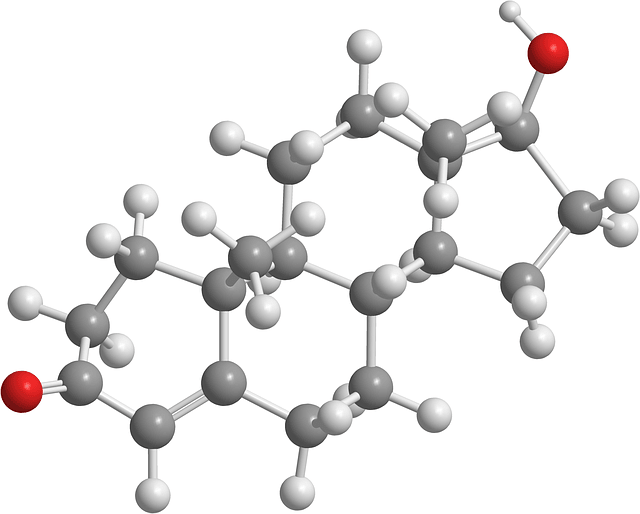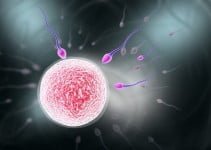
Hormones are diverse chemical substances that are discharged into the bloodstream in response to certain stimuli in the body.
Hormones bind to various receptors throughout your body and work by activating various pathways and cellular activities to keep your body in a state of homeostasis.
Each hormone has different, yet powerful functions, with different types working to regulate bodily functions and to carry messages to various parts of the body.
When it comes to pregnancy and birth, there are hormones which are released to help regulate many of the changes which take place throughout your body and to ensure that babies are born safely.
The information in this article will help you understand how hormones change during pregnancy and what each hormone does so that you can better understand the physiology of your body during pregnancy.
During pregnancy, hormones get a very bad rap because they are blamed for every single thing from nausea to mood swings.
In the course of a pregnancy that goes to full-term, the hormone levels that the placenta and corpus luteum secrete will rise significantly.
One of the major reasons why the hormone levels increase is because the placenta, which is an endocrine organ, produces hormones to help regulate blood and nutrient flow to the placenta and to the baby.
The hormones produced by the placenta are initially produced by the corpus luteum, then as the baby matures and the pregnancy progresses, the placenta grows strong enough to produce its own hormones.
Hormones of pregnancy include progesterone, steroids, human placental lactogen, hCG, estrogen, GnRH, FSH, Relaxin and oxytocin.
progesterone and estrogen help keep the placenta attached to the uterus and keep it healthy throughout the pregnancy.
Once the baby is delivered, these hormone levels decreased dramatically because the placenta is gone. A woman’s hormone levels will begin to regulate back to their normal homestatis levels before she even leaves the hospital.

To help you understand more about how hormones change during pregnancy, some of the main ones as well as their functions will be highlighted below:
Estrogen and Progesterone:
Human Chorionic Gonadotropin or hCG is responsible for stimulating the production of progesterone and estrogen hormones in the ovaries.
It’s only present during pregnancy and will be released in the very early stage of pregnancy to maintain the corpus luteum.
When the placenta matures enough to control the production of estrogen and progesterone hormones the production of hCG will decrease.
Estrogen is produced all through pregnancy to prepare the uterus or womb for the baby as well as the breasts for breastfeeding.
Estrogen causes the breast to enlarge and become tender. Progesterone will build up the lining of the uterus to support the placenta as well as prevent the natural contractions and movement of the womb to stop the womb from aborting the fetus spontaneously.
Women who have dropped in progesterone levels often miscarry, and if you have miscarried before, then your doctor may prescribe progesterone injections or supplements to help maintain the placenta and prevent contractions. This hormone causes women to lose interest in sex throughout pregnancy.
Oxytocin:
This hormone enables contractions of the womb throughout pregnancy and labor. It also causes contractions during breastfeeding and its supplements can be used when inducing labor. Oxytocin levels surge when baby’s head stimulates stretch receptors in the cervix.
Oxytocin, in the form of Pitocin, is often used to induce uterine contractions and cervical dilation during the labor.
Oxytocin also plays a key role in contracting the uterus after labor is over. This allows the uterus to clamp back down to its normal size and reduces blood loss after labor.
If you are bleeding heavily after labor, then Pitocin can be given to help your uterus become more firm and decrease bleeding.
Prolactin:
The pituitary gland produces this hormone and its function is to increase the cells which create milk in the breasts. Estrogen and progesterone will prevent milk production.[1]
The levels of those hormones will decrease significantly right after birth to allow prolactin to encourage the initial milk production.
In addition, the suckling will control milk production. It’s worth mentioning that the prolactin hormone will help to prevent nursing mothers from getting pregnant.
This method of birth control is not fool proof though, and it is still recommended that women use some form of birth control once they get the all clear from their doctor after delivery.
Otherwise, they may end up with another pregnancy quickly after their last.
Prostaglandins:
The prostaglandins might not get a lot of recognition when one is looking at how hormones change during pregnancy because they are tissue hormones which appear to stimulate labor.
The synthetic prostaglandins can be used as a method to induce labor in pregnancies which passes forty weeks. Prostaglandins are also the reason why sex may be used to induce labor naturally.[2]
When a woman has sex, her body releases prostaglandins, which can help dilate the cervix and get uterine contractions going.
Relaxin:
During early pregnancy, this hormone is present and it will help to limit the activities of the womb as well as soften up the cervix to prepare for delivery.
It also contributes to relaxing the ligaments that hold the bony pelvis together.
These ligaments need to be able to stretch during delivery to help open the birth canal and deliver the baby. Relaxing of ligaments happens all throughout the body, and may contribute to a little bit of joint and muscle pains during pregnancy.
Moreover, the relaxed muscles and the tissues inside the digestive system might trigger symptoms such as nausea, constipation, and heartburn.
Endorphins:
These are natural substances which are similar to heroin and morphine. The body produces them in response to pain and they work as a natural analgesic.
Some evidence shows that a pregnant woman’s body will start to produce a lot of endorphins before labor. It’s one of the natural ways that the body deals with the labor.
To Conclude
Overall, hormones are a necessary and wonderful part of pregnancy. But their changes can also affect the way you feel during pregnancy. Like most women, you might feel tearful, depressed or easily irritated at times.
You might feel like your emotions are all over the place for a while. These symptoms often ease up after the three first months of pregnancy.
Bear in mind that the changes in your body can also cause loss of control feelings, but you should worry too much as they all play a part in helping to provide an environment that is healthy for the growing baby and to prevent problems during delivery.
When you understand how hormones change during pregnancy, you are more likely to identify what is normal or not.
References




I had unprotected sex on the 12th of June and feel funny since then and I haven’t seen my periods. Am I pregnant?
Missing a period for 2 months is a cause for concern. A delayed period may be caused by pregnancy, stress, fatigue or other reasons. It’s best for you to take a pregnancy test as soon as possible to determine if you are actually pregnant.
My last menstrual cycle was on May 5. I had sex on May 13th and we were unprotected, could I be pregnant?
Hi Jazz. If you meant that your last period STARTED on the 5th, then it’s not likely that you’re pregnant; small possibility but definitely not likely. If you mean that it ENDED on the 5th, then yes, it would definitely be a possibility because sex would’ve happened around the time you were ovulating should that be the case.